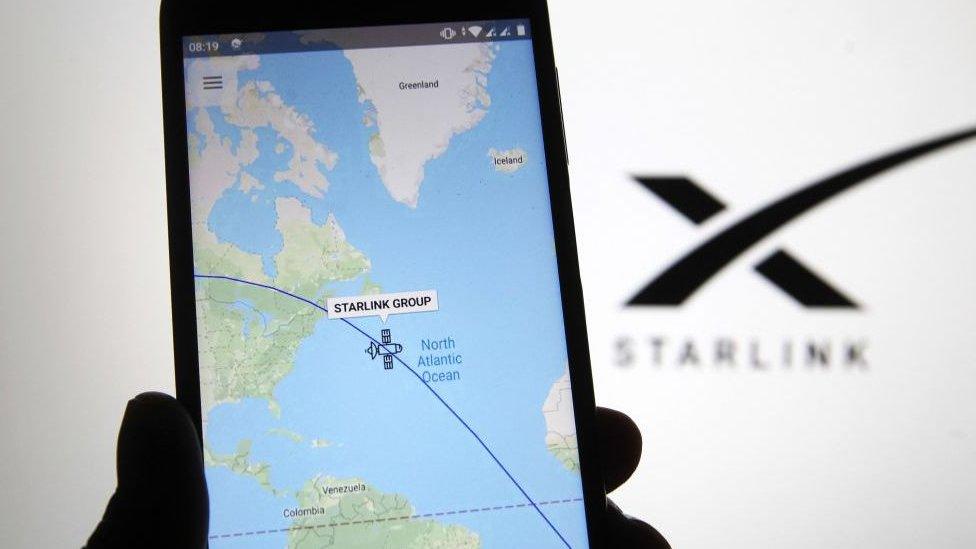Elon Musk's Starlink given green light in UK
- Published

Starlink will be in direct competition with OneWeb
Elon Musk's Starlink satellite internet service is already being used by a handful of people across the UK.
The company began rolling out a limited trial last month, it has emerged, after Ofcom granted it a licence in November.
It will compete against providers such as OneWeb, which government investment controversially saved from bankruptcy in November.
Telecom analysts said the competition could help drive down the price of satellite broadband for consumers.
Business Secretary Alok Sharma had to issue a "ministerial direction" to push forward the investment in OneWeb, after civil servants stated their objection, with critics questioning why ministers would invest so much money in what remains a risky venture.
Mr Musk plans to deliver broadband internet around the world, using 42,000 satellites.
His Space X company has launched more than 800 into orbit already and hopes to have 12,000 in the sky by 2026.
Starlink began testing its small satellite dishes, dubbed Dishy McFlatFace, in North America and Canada.
UK consumers will pay £439 for the gear and a further £84 a month to receive Starlink's broadband.
"The early pricing we've seen is probably too high for mass adoption," telecoms analyst Matthew Howett told BBC News.
"However, the likely competition between Starlink and OneWeb might help it become a more affordable option for consumers."
Remote-area connectivity
Zen Internet founder Richard Tang said the service could also benefit those living in remote areas of the UK.
"It could help to alleviate the UK’s remote-area connectivity issue and support those in the middle of nowhere who can’t get conventional high-speed broadband."
Last month, MPs warned the government would fail to achieve a target of offering 1Gbps-capable broadband to 85% of the UK by 2025.
Initially, it had aimed for nationwide coverage within five years.
But that targets was scaled back after it emerged only 25% of the promised £5bn funding would be available, at least for the next four years.
- Published7 January 2021

- Published23 April 2020

- Published24 May 2019
